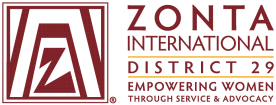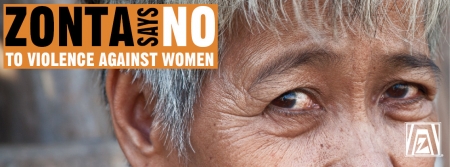CWS67 | Topics and registration
Commission on the Status of Women | CWS67 | 6 to 17 March 2023
The sixty-seventh session of the Commission on the Status of Women will take place in New York.
Background: NGO CSW Forum
The NGO CSW Forum is a civil society gathering that runs parallel to the UN Commission on the Status of Women (CSW). It provides civil society the opportunity to engage with the CSW processes and sessions without any special qualifications (such as ECOSOC-accreditation). The NGO CSW Forum includes hundreds of events that inform, engage, and inspire grassroots efforts to empower women and girls. The Forum gives CSOs and NGOs an opportunity to host their own in-person or virtual Parallel Events as part of the two-week forum.
Representatives of Member States, UN entities, and ECOSOC-accredited non-governmental organizations (NGOs) from all regions of the world are invited to contribute to the session.
Watch the YouTube video "NGO CSW67 Forum Intro"
From 6-17 March, the 67th session of the Commission on the Status of Women (CSW67) will focus on:
- Priority theme: Innovation and technological change, and education in the digital age for achieving gender equality and the empowerment of all women and girls | Watch the YouTube video "Innovation, Technological Change, and Education in the Digital Age for Achieving Gender Equality"
- Review theme: Challenges and opportunities in achieving gender equality and the empowerment of rural women and girls (agreed conclusions of the sixty-second session) | Watch the YouTube video "Rural Women & Youth"
- Many Side Events outside the formal programme of the session (see more below)
Take your chance to follow virtually! | Click here to register
Find more about the CWS67 programmes and the difference between side events and parallel events on this page below...
Watch the YouTube video "Participant Tutorial Video | NGO CSW67 Virtual Portal"
New This Year: Zonta CSW Study Groups
To prepare for the CSW, Zonta International UN Committee Chair Pamela Morgan will host a series of study groups on topics related to the priority theme of the CSW, Innovation and technological change, and education in the digital age for achieving gender equality and the empowerment of all women and girls.
Zonta Pre-CSW Virtual Orientation
Zonta International will also host a virtual CSW Orientation on Thursday, 23 February, at 9:00 a.m. for all in person and virtual Zonta attendees.
For more information please contact: Lydia Chaillou
Be careful, don’t confuse: CSW67 Side Events and Parallel events
Side events and parallel events are activities organized outside the formal program of the session of the Commission, they provide an excellent opportunity for Member States, UN entities and NGOs to discuss themes of the Commission and other critical gender equality issues.
- Side events: Permanent Missions and United Nations entities hold side events on UN premises during the CSW session | Watch the YouTube video "Parallel Event Organizer Training"
- Parallel events are held by Non-governmental Organizations (NGOs) hosted by NGOs and CSOs from around the globe during the NGO CSW Forum. They are one of the key components of the NGO CSW Forum, as they provide a space and voice for CSOs who may not have full access to the UN. Because they are outside the official UN CSW session, they are open to the public and free to attend. These events allow for education and galvanizing around different issues and topics within the feminist and women’s movement. https://ngocsw.org/ | Watch the YouTube video "Parallel Event Organizer Training"
- Don’t miss virtual Exhibit Booths – it imitates a traditional exhibit hall with different interactive “booths” for Forum participants to visit and learn all about the sponsoring organization, campaign, or group.

Advocay & Research Group's Work for CWS67
The 5 following recommendations have been prepared, after consulting more than 700 people in our global community, including members of the global NGO, critical concerns were identified for “achieving gender equality and empowering all women and girls in the context of innovation and technological change, and education in the digital age.” Women and girls should be involved in leadership and decision-making processes to implement
- Develop international standards and guidelines to address and eliminate the risks to the digital privacy, safety, autonomy, and dignity of women and girls in their diversity.
- Ensure universal access to essential and gender inclusive public and private digital infrastructure including electricity and frontier data and Artificial Intelligence (AI) innovations to bridge existing digital divides. Guarantee access to digital technologies in rural areas and ensure equal opportunity particularly for older women and women with disabilities to be empowered with ICTs.
- Enhance official development assistance commitments and improve public finance and investments, as well as leverage private sector partnerships, for universal, affordable, equal and unfettered access to digital technologies for women and girls.
- Engage with girls and young women in the formulation, design and development of adequately financed policies and programs that prioritize digital literacy skills, online safety, and STEM education for girls, young women and marginalized groups. Address unequal gender norms, policies and laws and lack of infrastructure that hinder girls’ access, engagement and safety with digital tools, ICT and STEM education.
- Engage with girls and young women in the formulation, design and development of adequately financed policies and programs that prioritize digital literacy skills, online safety, and STEM education for girls, young women and marginalized groups. Address unequal gender norms, laws and lack of infrastructure that hinder girls’ access, engagement and safety with digital tools, ICT and STEM education.

